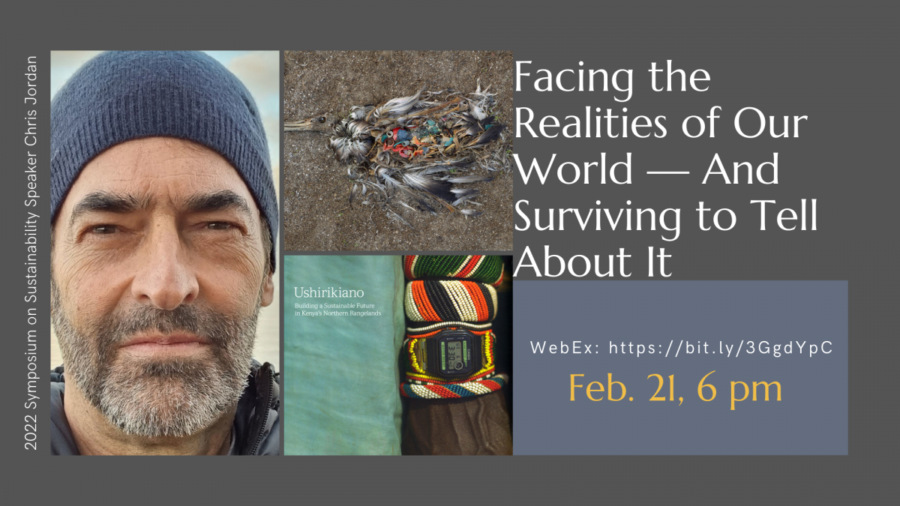Lectures Series exposes students to a positive view of environmentalism
Courtesy of Iowa State's Lectures Series webpage
Chris Jordan was featured in Iowa State’s Lecture Series Monday night, offering students an alternative and positive perspective on modern environmentalism.
February 21, 2022
Artist Chris Jordan has spent more than 20 years exploring the impacts of mass consumption, but he has changed his message from one of despair to one of love.
A guest speaker of the Iowa State Lecture Series, Jordan shared his career and his new perspective on environmentalism with Iowa State students in a lecture Monday via Webex.
At the beginning of Jordan’s career, he focused his photography and environmentalist activities on the enormous scale of mass consumption. Based in Seattle, Jordan began his full-time career as a photographer by taking photographs of the Port of Seattle and the industrial facilities around that area.
“I was fascinated by [the giant piles of things we use],” Jordan said. “I began reading about mass consumption… and the enormity of this phenomenon and how much damage it is causing in our world.”
The more reading he did, the more he viewed mass consumption as a monster.
This view of mass consumption is common in doomsday or apocalyptic environmentalism. This environmentalist message is pessimistic and holds a conviction that Earth’s long-term prospects are bleak. It was a large part of the environmental movements in the 1960s and early 1970s according to Encyclopedia Britannica.
Jordan put out and held these beliefs himself during his early career.
“I was putting out what I now realize was a kind of standard environmental message,” Jordan said. “About how everything is going to heck, talking about bad news.”
However, Jordan now believes that a message of doom and gloom is not how environmentalism should be spread.
“In a state of chronic fear…because of so much doomsday environmentalism, we lose our ability to think,” Jordan said. “We have to face the truth.”
Jordan’s new view of environmentalism focuses on the beauty that is abundant within nature and humans themselves.
“The truth of it is, our world is unbelievably beautiful,” Jordan said. “We cannot help but fall crazy in love with all of the amazing, beautiful forms of life that are out there.”
Jordan believes that by encouraging people to take time and see the beauty within themselves and the world around them, environmentalism can grow and become greater. But it starts within oneself.
“The key is to connect with our own heart… focus on the healing of your own heart,” Jordan said. “If we can put the focus on healing ourselves… it becomes universal. We can make a new story for our future.”

















